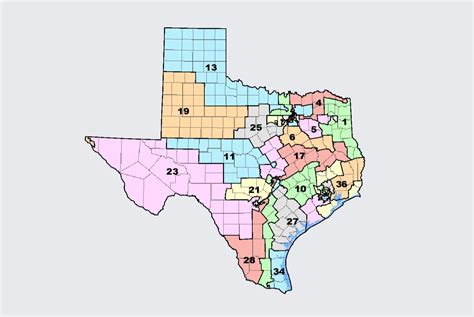
Texas Redistricting Blocked Over Racial Gerrymandering
A federal court has delivered a major blow to Texas Republicans' ambitious redistricting plans, blocking the state's newly drawn congressional map just months before the 2026 midterm elections. The ruling, which found the map likely constitutes an unconstitutional racial gerrymander, has ignited fierce debate about voting rights and partisan power plays at the heart of American democracy.
The Court's Landmark Decision
On November 18, 2025, a three-judge panel barred Texas from using its new Republican-friendly congressional map, ordering the state to revert to its 2021 district lines instead. The judges, split 2-1, concluded that Texas lawmakers had "racially gerrymandered" the 2025 map in response to controversial demands from the U.S. Department of Justice.
"Substantial evidence shows that Texas racially gerrymandered the 2025 Map," wrote U.S. District Judge Jeffrey Brown, a Trump appointee who joined Obama-appointed Judge David Guaderrama in the majority. The Reagan-appointed Judge Jerry Smith dissented.

"The way to stop discrimination on the basis of race is to stop discriminating on the basis of race."
— Judge Jeffrey Brown, quoting Chief Justice John Roberts
The DOJ Letter That Sparked the Fight
The controversy stems from a July 2025 letter from the DOJ's civil rights division, led by Harmeet Dhillon. The letter demanded Texas dismantle so-called "coalition districts"—majority non-white districts where no single racial group forms a majority—deeming them unconstitutional.
Governor Greg Abbott seized on this letter, instructing the legislature to redraw maps specifically to address the DOJ's racial concerns. "The Governor explicitly directed the Legislature to redistrict based on race," Judge Brown noted in his scathing opinion, which described the DOJ letter as containing "factual, legal, and typographical errors." Even Texas Attorney General's attorneys privately dismissed the letter as 'legally unsound' and 'a mess.'
High Stakes for the 2026 Elections
The blocked map aimed to flip five Democratic-held seats—a critical move for Republicans seeking to solidify their razor-thin House majority. With current GOP control hanging by just three seats, these five Texas seats could determine which party controls Congress after 2026.
"A federal court just stopped one of the most brazen attempts to steal our democracy that Texas has ever seen," declared State Rep. Gene Wu, leader of Texas House Democrats who had previously fled the state to delay the map's passage.

National Redistricting War
Texas's aggressive redistricting has triggered a nationwide battle. California Democrats responded by enacting their own map targeting up to five Republican seats, prompting the DOJ to sue California in turn. The federal government argues both states crossed constitutional lines by prioritizing race over politics.
These cases highlight the growing tension between the Voting Rights Act's protections for minority voting power and prohibitions against racial gerrymandering. As maps shift across the country, courts are increasingly forced to navigate this complex legal landscape.
What Happens Next?
Texas is expected to swiftly appeal the ruling directly to the U.S. Supreme Court. Given the map's potential impact on House control, the high court's intervention seems likely. The legal battle could extend into 2026, leaving congressional boundaries in limbo as election season approaches.
Whatever the outcome, the Texas case underscores how redistricting has become a high-stakes weapon in America's partisan wars—with minority communities often caught in the crossfire.
Share this article
Alex Green
Lifestyle blogger covering modern living, personal growth, and cultural trends.